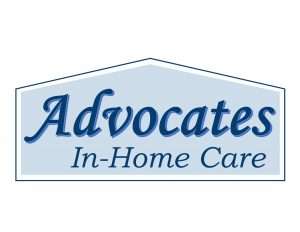Assistive Devices for Seniors
In recent years, we’ve seen a wide array of assistive devices for seniors become available. Some solutions are very simple and others are very high-tech. The good news is that there are a lot of options. And the not-so-good news is that there are a lot of options. It can be difficult to know what assistive devices exist that may be helpful. And it’s a challenge to know how to choose the right solution.
The goal of assistive devices for seniors is to increase capabilities that improve independence, and safety. Therefore, assistive devices cover a broad range of activities from communication to mobility, personal cares to household chores.
Communication
The ability to communicate keeps you from becoming isolated. Advances in technology have given us many ways to connect and stay in touch. Simpler, large button cell phones are one option. Computers and tablets have voice recognition for those with difficulty manipulating a mouse or keyboard. If you have difficulty speaking, there are portable tablets that can be customized with pictures or phrases that you use most often.
Assistive devices for the hearing impaired include closed caption telephones and TVs. Hearing aids come in many forms. Many hearing aids are now able to tap into hearing loops in public venues. Personal sound amplifiers attach to almost any electronic device, which brings you clearer music and dialogue.
Mobility
Mobility devices cover everything from canes to wheelchairs and stairlifts. The variety in walker designs is staggering. Wheel chairs

can be manual and basic, electric and complicated, or something in-between. You can get crutches, orthotics, a walker/cane hybrid or a motorized scooter. Buildings are putting in ramps and wider doorways to accommodate folks using all kinds of mobility devices.
At Home
In your home, an easily plugged in remote outlet control allows you to turn on lights, the TV and appliances with the touch of a button on a hand held remote. Button hook aids and a variety of adapted kitchen utensils are very helpful if you have arthritis or reduced dexterity. TV ears (wireless headphones) allow you to hear the TV more clearly while keeping the main volume down. Voice command alarm clocks and other devices restore some sense of control over your environment.
A specialized bed handle that slips under your mattress gives you a firm stable grip for help in getting out of bed. Chair lifts or a portable uplift seat assist you in getting out of chairs or off the couch. An array of bathroom support bars, a toilet safety frame and non-slip floor mats bring safer conditions to the most dangerous room in the house.
portable uplift seat assist you in getting out of chairs or off the couch. An array of bathroom support bars, a toilet safety frame and non-slip floor mats bring safer conditions to the most dangerous room in the house.
Medical Help
Medical alert devices abound, some with automatic fall detection. Home monitoring devices for vital signs such as blood pressure, pulse and blood glucose are already available. Audible pill reminders and automatic pill dispensers are in use. In the near future, we will see added remote healthcare options as the technology continues to advance. And entire houses can be wired with cameras to allow a remote relative to check in on an at-risk senior without having to physically visit the home.
It may take some digging to discover what’s available, and some experimentation to find the products that best meet your needs. But if you are in need of an assistive device, ask around. There is probably something on the market that will help you out. Customer reviews and senior service agencies are good places to find out about the kinds of assistive devices out there, and how well they have worked for others. Occupational or physical therapy departments can help to assess your needs and suggest adaptations or devices.
Assistive devices for seniors can improve health, safety and overall quality of life. If you find that you are in need of some device but are uncertain on the specifics, or concerned about financing, check for local resources. In Door County, we have a non-profit organization, Neighbor to Neighbor, that lends durable medical equipment to those in need. It may be possible to test out a particular device to see if it works for your situation. The Aging & Disability Resource Center (ADRC) in your area may have funding to help you acquire the items you need. And the ADRC staff can often help you discover what assistive devices are out there and which ones might be of benefit to you.

Recent Comments